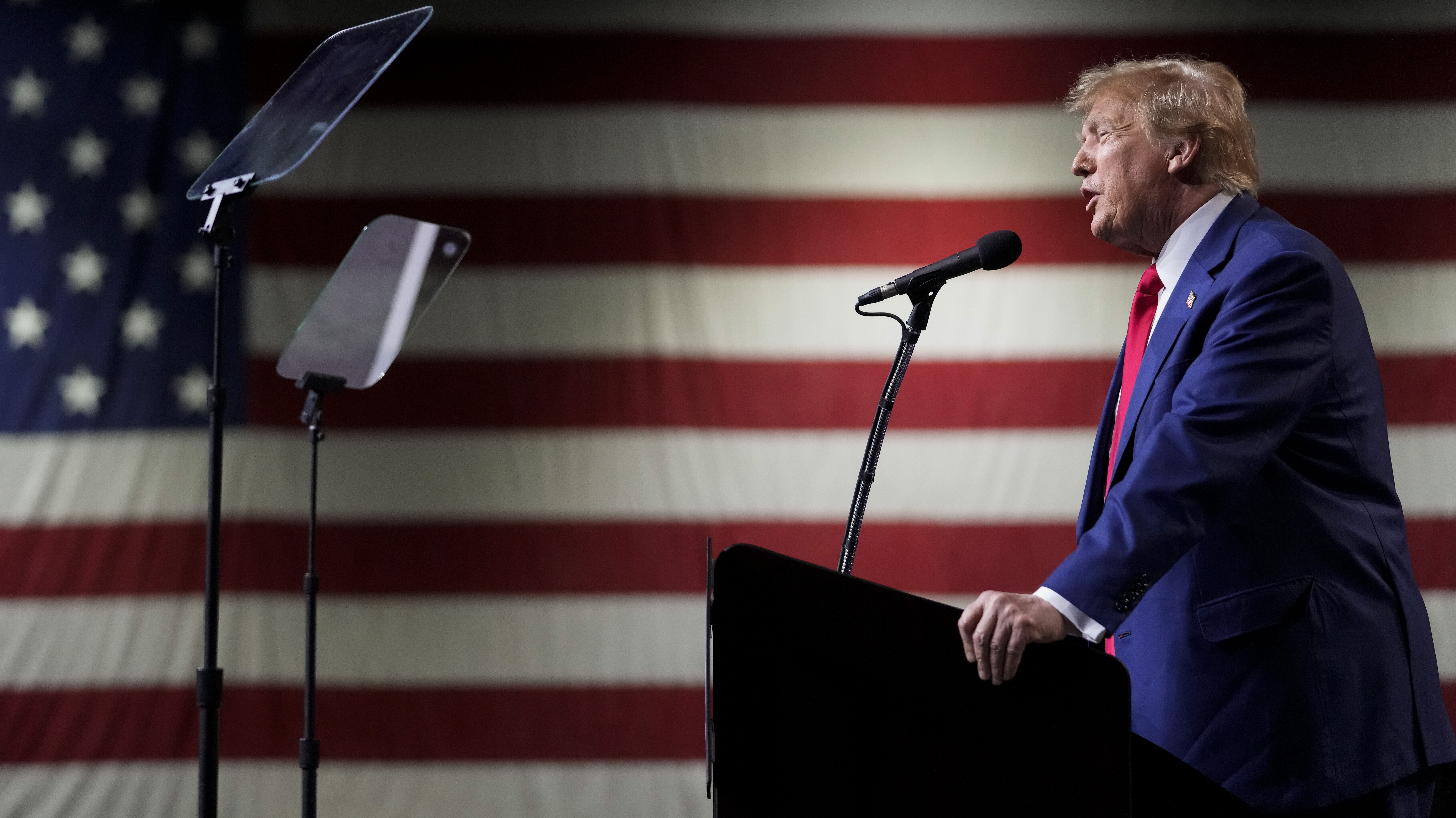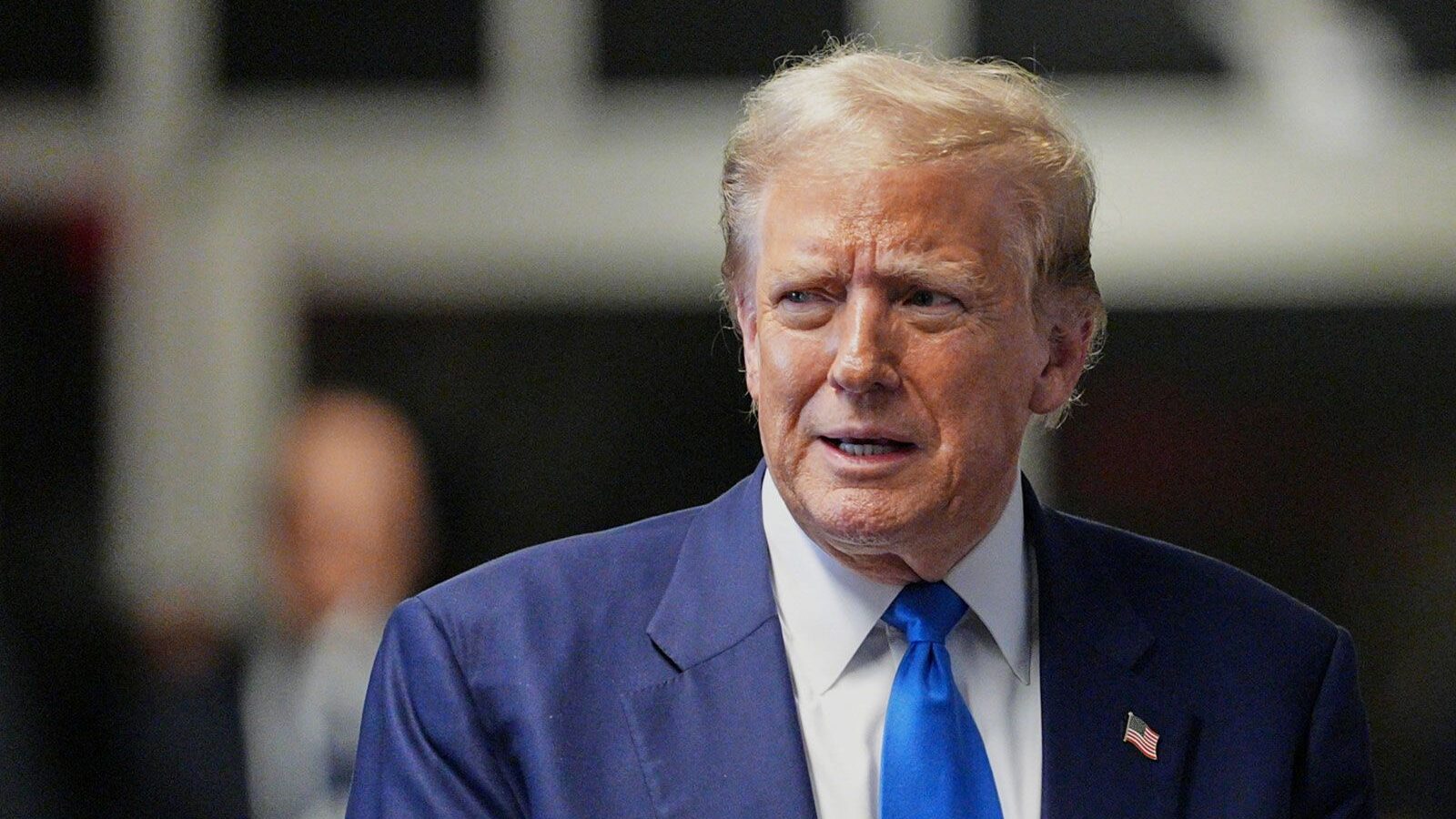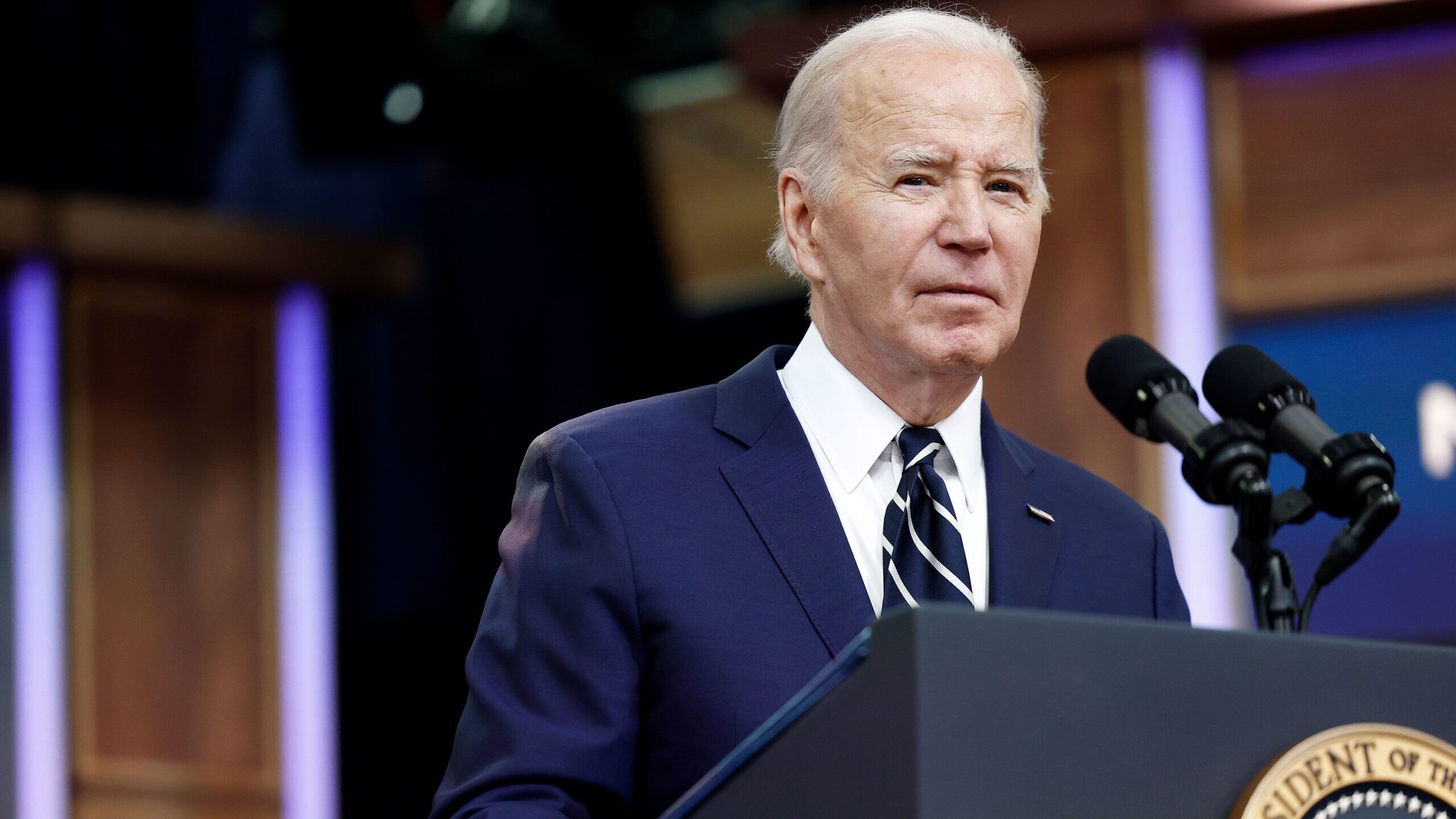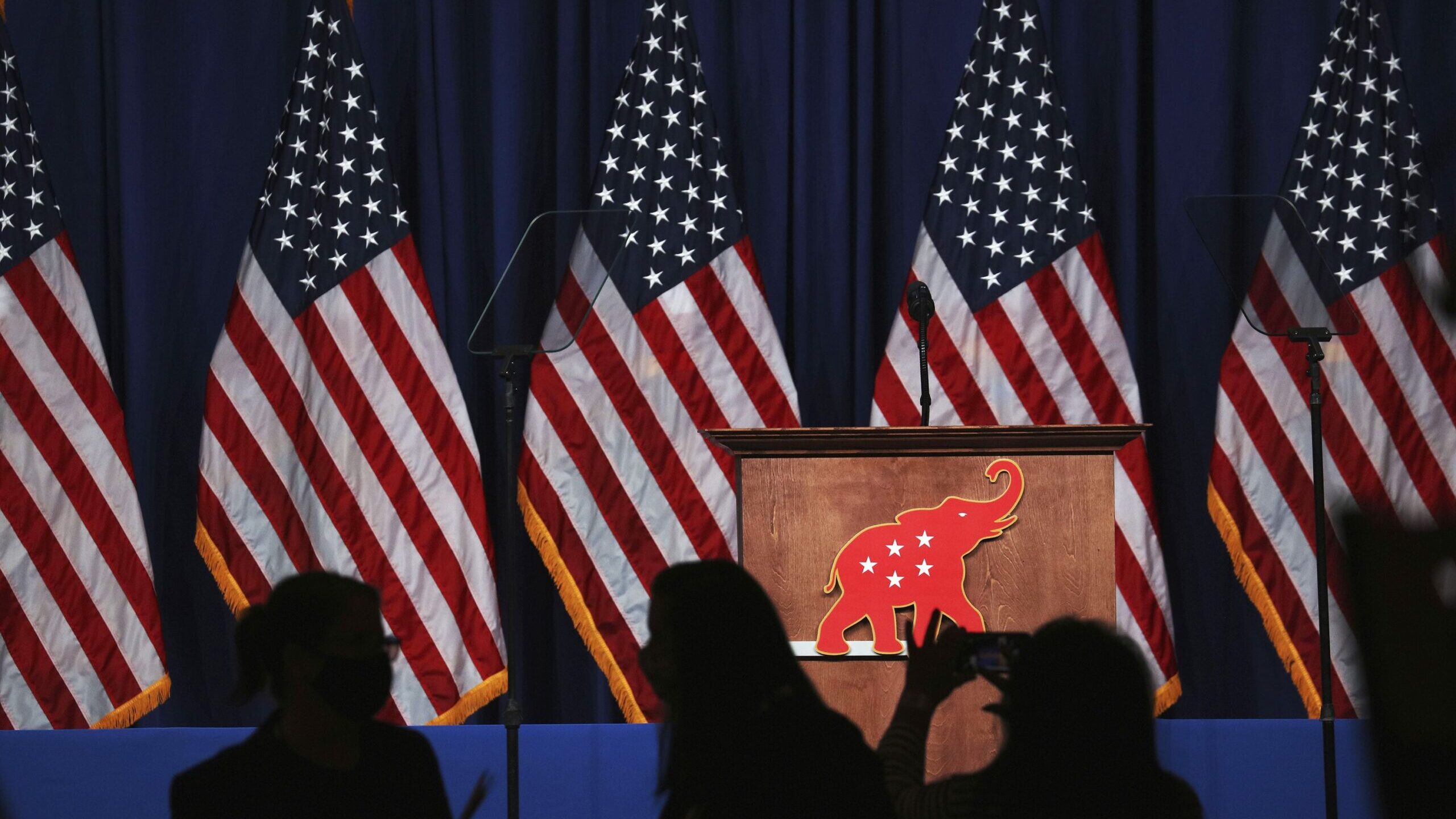Trump is blocked from the GOP primary ballot in two states. Can he still run for president?
Dec 29, 2023, 4:00 PM

FILE - Former President Donald Trump speaks during a rally Sunday, Dec. 17, 2023, in Reno, Nev. The Colorado Supreme Court on Tuesday, Dec. 19, declared Trump ineligible for the White House under the U.S. Constitution’s insurrection clause and removed him from the state’s presidential primary ballot, setting up a likely showdown in the nation’s highest court to decide whether the front-runner for the GOP nomination can remain in the race. (AP Photo/Godofredo A. Vásquez, File)
(AP Photo/Godofredo A. Vásquez, File)
DENVER (AP) — First, Colorado’s Supreme Court ruled that former President Donald Trump wasn’t eligible to run for his old job in that state. Then, Maine’s Democratic secretary of state ruled the same for her state. Who’s next?
Both decisions are historic. The Colorado court was the first court to apply to a presidential candidate a rarely used constitutional ban against those who “engaged in insurrection.” Maine’s secretary of state was the first top election official to unilaterally strike a presidential candidate from the ballot under that provision.
But both decisions are on hold while the legal process plays out.
That means that Trump remains on the ballot in Colorado and Maine and that his political fate is now in the hands of the U.S. Supreme Court. The Maine ruling will likely never take effect on its own. Its central impact is increasing pressure on the nation’s highest court to say clearly: Can Trump still run for president after the Jan. 6, 2021, attack on the U.S. Capitol?
WHAT’S THE LEGAL ISSUE?
After the Civil War, the U.S. ratified the 14th Amendment to guarantee rights to former slaves and more. It also included a two-sentence clause called Section 3, designed to keep former Confederates from regaining government power after the war.
The measure reads:
“No person shall be a Senator or Representative in Congress, or elector of President and Vice-President, or hold any office, civil or military, under the United States, or under any State, who, having previously taken an oath, as a member of Congress, or as an officer of the United States, or as a member of any State legislature, or as an executive or judicial officer of any State, to support the Constitution of the United States, shall have engaged in insurrection or rebellion against the same, or given aid or comfort to the enemies thereof. But Congress may by a vote of two-thirds of each House, remove such disability.”
Congress did remove that disability from most Confederates in 1872, and the provision fell into disuse. But it was rediscovered after Jan. 6.
HOW DOES THIS APPLY TO TRUMP?
Trump is already being prosecuted for the attempt to overturn his 2020 loss that culminated with Jan. 6, but Section 3 doesn’t require a criminal conviction to take effect. Dozens of lawsuits have been filed to disqualify Trump, claiming he engaged in insurrection on Jan. 6 and is no longer qualified to run for office.
All the suits failed until the Colorado ruling. And dozens of secretaries of state have been asked to remove him from the ballot. All said they didn’t have the authority to do so without a court order — until Maine Secretary of State Shenna Bellows’ decision.
The Supreme Court has never ruled on Section 3. It’s likely to do so in considering appeals of the Colorado decision — the state Republican Party has already appealed, and Trump is expected to file his own shortly. Bellows’ ruling cannot be appealed straight to the U.S. Supreme Court — it has to be appealed up the judicial chain first, starting with a trial court in Maine.
The Maine decision does force the high court’s hand, though. It was already highly likely the justices would hear the Colorado case, but Maine removes any doubt.
Trump lost Colorado in 2020, and he doesn’t need to win it again to garner an Electoral College majority next year. But he won one of Maine’s four Electoral College votes in 2020 by winning the state’s 2nd Congressional District, so Bellows’ decision would have a direct impact on his odds next November.
Until the high court rules, any state could adopt its own standard on whether Trump, or anyone else, can be on the ballot. That’s the sort of legal chaos the court is supposed to prevent.
WHAT ARE THE ARGUMENTS IN THE CASE?
Trump’s lawyers have several arguments against the push to disqualify him. First, it’s not clear Section 3 applies to the president — an early draft mentioned the office, but it was taken out, and the language “an officer of the United States” elsewhere in the Constitution doesn’t mean the president, they contend.
Second, even if it does apply to the presidency, they say, this is a “political” question best decided by voters, not unelected judges. Third, if judges do want to get involved, the lawyers assert, they’re violating Trump’s rights to a fair legal procedure by flatly ruling he’s ineligible without some sort of fact-finding process like a lengthy criminal trial. Fourth, they argue, Jan. 6 wasn’t an insurrection under the meaning of Section 3 — it was more like a riot. Finally, even if it was an insurrection, they say, Trump wasn’t involved in it — he was merely using his free speech rights.
Of course, the lawyers who want to disqualify Trump have arguments, too. The main one is that the case is actually very simple: Jan. 6 was an insurrection, Trump incited it, and he’s disqualified.
WHAT’S TAKEN SO LONG?
The attack was three years ago, but the challenges weren’t “ripe,” to use the legal term, until Trump petitioned to get onto state ballots this fall.
But the length of time also gets at another issue — no one has really wanted to rule on the merits of the case. Most judges have dismissed the lawsuits because of technical issues, including that courts don’t have the authority to tell parties whom to put on their primary ballots. Secretaries of state have dodged, too, usually telling those who ask them to ban Trump that they don’t have the authority to do so unless ordered by a court.
No one can dodge anymore. Legal experts have cautioned that, if the Supreme Court doesn’t clearly resolve the issue, it could lead to chaos in November — or in January 2025, if Trump wins the election. Imagine, they say, if the high court ducks the issue or says it’s not a decision for the courts to make, and Democrats win a narrow majority in Congress. Would they seat Trump or declare he’s ineligible under Section 3?
WHY DID MAINE DO THIS?
Maine has an unusual process in which a secretary of state is required to hold a public hearing on challenges to politicians’ spots on the ballot and then issue a ruling. Multiple groups of Maine voters, including a bipartisan clutch of former state lawmakers, filed such a challenge, triggering Bellows’ decision.
Bellows is a Democrat, the former head of the Maine chapter of the American Civil Liberties Union, and has a long trail of criticism of Trump on social media. Trump’s attorneys asked her to recuse herself from the case, citing posts calling Jan. 6 an “insurrection” and bemoaning Trump’s acquittal in his impeachment trial over the attack.
She refused, saying she wasn’t ruling based on personal opinions. But the precedent she sets is notable, critics say. In theory, election officials in every state could decide a candidate is ineligible based on a novel legal theory about Section 3 and end their candidacies.
Conservatives argue that Section 3 could apply to Vice President Kamala Harris, for example — it was used to block from office even those who donated small sums to individual Confederates. Couldn’t it be used against Harris, they say, because she raised money for those arrested in the unrest after the murder of George Floyd by Minneapolis police in 2020?
IS THIS A PARTISAN ISSUE?
Well, of course it is. Bellows is a Democrat, and all the justices on the Colorado Supreme Court were appointed by Democrats. Six of the 9 U.S. Supreme Court justices were appointed by Republicans, three by Trump himself.
But courts don’t always split on predictable partisan lines. The Colorado ruling was 4-3 — so three Democratic appointees disagreed with barring Trump. Several prominent legal conservatives have championed the use of Section 3 against the former president.
Now we’ll see how the high court handles it.













